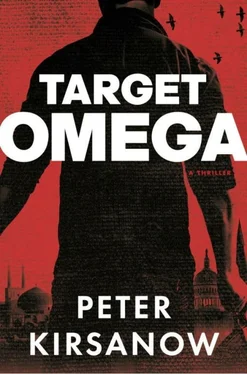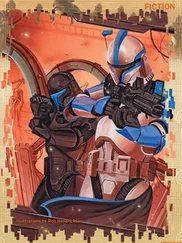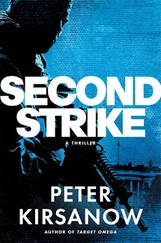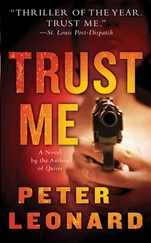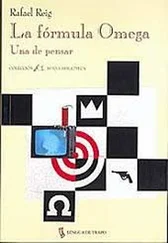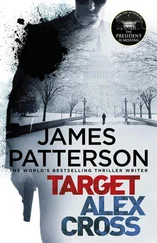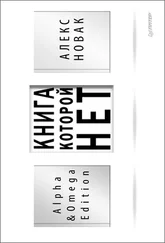Chernin glanced at Park, an eyebrow raised.
Mansur smiled. “I am not talking about price, Mr. Park, although I welcome your offer. I am talking about my life. Literally, I am afraid.”
Park looked mildly confused. “You have done such things before, have you not?”
“Yes, yes,” Mansur said, waving a shroud of smoke from his face. “There is always a risk when dealing in contraband — human or otherwise — and especially in countries such as ours. The risks may vary, but they are risks nonetheless. This, however, is different.” Mansur looked at Chernin. “Dmitri, I have enjoyed our time together. I do not have many occasions these days to socialize with individuals who are, shall we say, ‘worldly.’ What little I have learned from our conversations leads me to think you gentlemen are involved in a matter very important and extremely dangerous. That means my involvement with you would be extremely dangerous. Before I agree to help you, I must know precisely how dangerous. And whether I must then make my own arrangements.”
Chernin and Park stared at each other for several seconds. Mansur knew that each was contemplating what, if anything, to reveal about their work. For Park, any personal constraints on full disclosure should’ve disintegrated once he’d made the decision to defect. He no longer had anything to lose. The only reason to maintain any level of secrecy was the effect disclosure might have on Chernin, who would return to Russia. Mansur resisted the urge to tell both men that Park’s defection actually gave Chernin the perfect cover. If their secret somehow got exposed, everyone — the Russians, North Koreans, Iranians — would think it was Park, the defector, who had talked.
Chernin was thinking exactly the same thing. The Russian knew that Mansur would be killed, undoubtedly after a long and brutal torture, if the Iranian regime discovered that he had any involvement in Park’s defection. Mansur deserved to embark on this endeavor with his eyes open. He needed to know precisely what risks the endeavor entailed. But Chernin, product of the Soviet Union, needed assurances of his own.
Chernin said in a slow, deliberate cadence, “Let us, as you said, be frank. I understand your need to assess how much risk you are assuming by helping us. And you are correct; we are involved in a matter of extreme importance to our respective countries and, accordingly, a matter very dangerous.” Chernin leaned forward, his eyes narrowed. “I will tell you what I believe you need to know. But first, let me be very clear about something. Yes, we have talked about some interesting things. I have told you… well, not much, but more than a little of what we are doing up in the mountains. But I’m not as stupid as I may appear.” The tone of the scientist’s voice became oddly chilling.
Mansur began to protest, but Chernin calmly raised his hand to silence him. Park shifted uncomfortably in his seat before Chernin resumed speaking. “I have never suffered under the illusion that what I’ve told you stayed in this apartment. After all, you’re former SAVAK.” Chernin paused and glanced about the room. “You live very well, despite not having any visible source of income. It is, therefore, probable that you have sold some of what I’ve told you to an interested party or parties — possibly American, but more likely Mossad.”
Mansur had a pained look on his face. “Dmitri…”
Chernin held up his hand again. “No need for explanations or apologies,” Chernin said dismissively. “I truly hope you did not think that what I told you was the result of a tongue made loose by vodka. I am not some undisciplined fool. What I told you was intended for not just your ears.”
Expressions of surprise covered the faces of Mansur and Park. Park because he couldn’t imagine the stoic Russian would say anything whatsoever about the project to Mansur, and Mansur because he had not for a moment considered that Chernin’s revelations about the project were intentional.
Chernin drew even closer to Mansur. “What we’re doing, my young friend and I — the missiles — is an abomination. Perhaps I did not know that at the beginning; my superiors never revealed the purpose of the project.” Chernin shrugged, his lips drawn into a scowl. “What can I say? We are Russian. Everything is a secret. This is a very big secret. And the more I have learned, the worse it is.”
Mansur smiled in admiration. This had never happened to the old spy. He had been played by his clever friend, someone with no intelligence experience whatsoever. Over the course of their time together, Mansur believed it was he who had been manipulating the Russian.
“It is only in the last few weeks that the essential purpose of our work has become manifest,” Chernin continued. “Yet from fairly early on, it has been my aim to alert the West that something troubling was coming. And I found a reliable conduit in you, did I not?”
Mansur dropped all pretense. He was dealing with a man who was far more sophisticated than Mansur had imagined. “You have, Dmitri. I never put you in any danger. I never revealed the name of my contact. Nor did I provide any identifying information that could be traced to you.”
Chernin casually sipped his vodka, staring at Mansur. He understood the last statement was untrue. That was the nature of such things.
“Mossad?”
Mansur didn’t respond.
“Hamid, you must never reveal your source. Of course, I do not need to tell you this. It is your expertise, your life’s work. I simply say it for emphasis. If you were to ever reveal my name, the source of information could then be tracked back to you.”
Chernin knew he now had an unshakable ally.
Mansur gave two quick nods. “Yes. Your life and mine, I’m afraid, are dependent on one another.”
“Correct. As obvious as that is, it is important, I think, for us to acknowledge it. If either of our governments learns that what I am about to tell you has been transmitted to the West, what remains of our lives will be worse than hell.”
“If it is that bad, then I suspect I’ll have to make arrangements to leave the country myself,” Mansur said.
“You’ll need to leave the country not only for helping my friend,” Chernin said, “but because it will be an extremely dangerous place in which to live.”
Park’s eyes flitted from Chernin to Mansur as they spoke. “So you will help?” he asked.
“The Iranian regime is insane,” Mansur replied to Park. “And I suspect the consequences of their insanity are about to be visited upon my country in a catastrophic way. I would do what I can to make achievement of their goals more difficult. So, of course I will help you. But first you will help me by supplying the details of the project in the mountains. I will then immediately make arrangements for your departure.” Mansur looked back to Chernin. “Dmitri, if you’re not also leaving, what will you do?”
Chernin did not reply immediately but took another sip of vodka. “I have received a good deal of compensation for my work on the project and I plan, quite unoriginally, to use it to retire to a dacha on the Black Sea. I will be safe — in fact, more than safe. I will be celebrated as a national hero.”
Mansur reached forward and clasped Chernin’s hand. “Should you change your mind, I can arrange passage for you also.”
Chernin smiled. “Always looking for a fee, Hamid.”
“No fee, Dmitri,” Mansur said earnestly. He looked to Park. “And now that we have come to the subject of price, Mr. Park, no fee for you, either. Use the money to disappear so that you’ll never be found.”
“Thank you,” Park said, “but I could not—”
“No need to thank me. Thank the Israelis. I will make your arrangements before you leave tonight. They do not know it yet, but they will be paying your fee, and quite a fee it will be.”
Читать дальше
